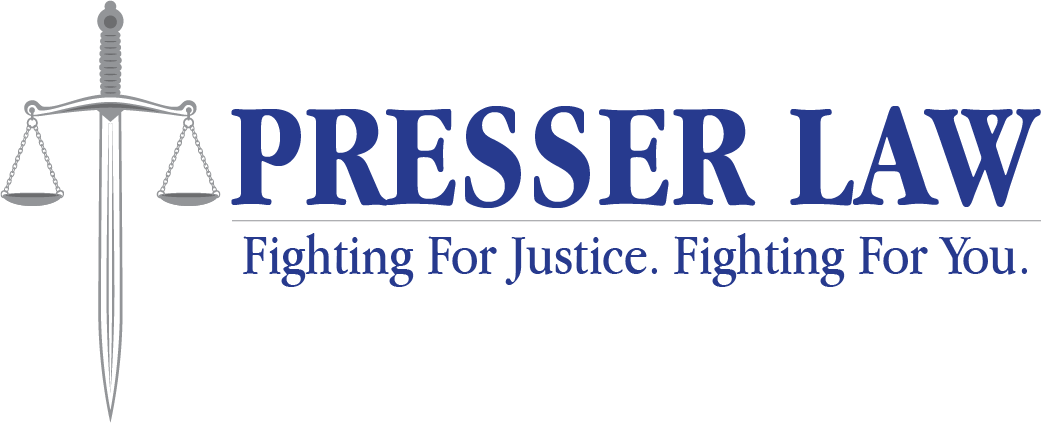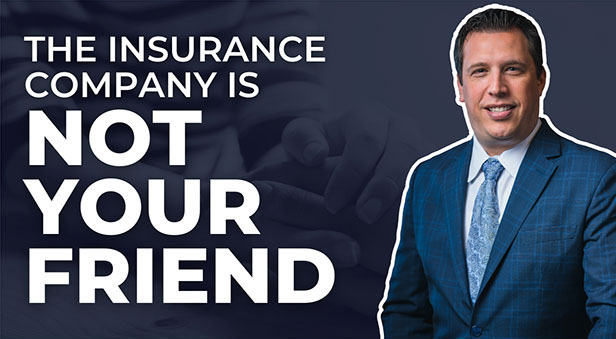On March 24, 2023, Florida Governor Ron Desantis signed into law HB 837, which changed Florida to a modified comparative fault state. Previously, Florida was a pure comparative fault. How might Florida’s new comparative fault law affect your injury claim? This article will explain modified comparative fault and what it may mean for your injury or wrongful death claim.
WHAT IS THE DIFFERENCE BETWEEN PURE COMPARATIVE FAULT AND MODIFIED COMPARATIVE FAULT?
In a prior blog we discussed Comparative Law in detail. However, since the law has now changed, we will cover only the basics. At its core, pure comparative fault means that each individual is responsible for their own percentage of fault.
If an individual is 100% responsible for causing someone’s injury, they are responsible for 100% of the damages caused. That example is easy enough. If the injured party is responsible for a portion of their damages, such as 75%, then the tortfeasor is responsible for only 25% of the damages. In pure comparative fault states, there must be an allocation of fault between all parties – the injured party and the tortfeasors. This ensures that tortfeasors do not escape responsibility for the damages they cause. It also prevents an injured party from recovering for the percent of damages for which they caused.
Under Modified Comparative Fault, an injured party can only recover from the tortfeasor if the injured party was not more than 50% responsible for causing their own injury. A tortfeasor who is 100% responsible for causing injuries will still be held 100% responsible for the damages caused. However, in situations where an injured party is found to have been 50.1% responsible or more, the tortfeasor is not responsible for any injury caused – even if they were 49.9% responsible.
In essence, Modified Comparative Fault limits the exposure tortfeasors face by barring an injured party from collecting any damages where the injured party is more than 50% responsible for causing their own injury.
Pure comparative fault focuses on holding each party responsible for their portion of damages. Modified comparative fault bars injured parties from obtaining any recovery if they are more than 50% responsible for causing their injuries. Where the injured party is less than 50% responsible, the tortfeasor is only responsible for their percentage of liability.
FOUR (4) REAL-WORLD WAYS MODIFIED COMPARATIVE FAULT WILL AFFECT YOUR CLAIM
- Retaining an Attorney – The real-world effect of modified comparative fault will be felt immediately in the selection of cases attorneys accept. Cases which will receive the greatest scrutiny are premises liability cases (slip and fall, trip and fall), motorcycle cases, and contested liability cases without witnesses (such as intersection car accidents, side swipes, and other “he said, she said” accidents”).
The reason for greater initial scrutiny is because it has now become harder for injury victims to receive compensation. If an injury victim is barred from recovery if they are more than 50% responsible, then these types of cases become problematic as they often start off at “50-50” liability cases. The liability can then shift one way or the other depending on the facts and investigation. Many attorneys may not wish to take on the costs of hiring experts and/or paying for the review of evidence if the potential recovery does not provide a significant incentive.
- Your Potential for Recovery – Another effect of modified comparative fault jurisdictions is the elimination of recovery which you would have been entitled to under the pure comparative fault system. Under a pure comparative fault system, injury victims may have incurred significant medical bills – especially if they were admitted into the hospital and/or underwent surgery. In such cases, even if the injured party was 75% at fault, the 25% responsibility on the other party may have required the insurance policy to tender the policy limits to the injured party based on the severity of the injury.
An example of this may be where a vehicle comes to a complete stop at a stop sign and mistakenly pulls into oncoming traffic causing a crash. In this scenario, there will be no disagreement that the vehicle which pulled into oncoming traffic has a significant amount of fault for causing the crash. However, what if the oncoming vehicle driver was scrolling Facebook, Instagram, or other social media or news platform on their phone and did not see the car pull out and as a result did not try to move into the next lane over to avoid the crash? Drivers have a duty to pay attention to the roadway. Failing to pay attention to the roadway leads to being unable to see hazards ahead of them and try to avoid them. In this instance, the failure to pay attention to the roadway would place some percentage of fault on the other driver.
If someone were to lose their life or sustain a significant injury in the fact pattern above, compensation could have been obtained against the driver not paying attention to the roadway in a pure comparative fault jurisdiction. However, the same injury victim would be barred from recovery in a modified comparative fault jurisdiction.
- Increased Medical Debt – Injuries often result in medical care. Medical care often results in increased medical bills. Those bills are often owed, in some portion, by the injured party either through deductible, co-pays, and/or in full if there is no applicable insurance. In a pure comparative fault jurisdiction, the amount of medical bills plays a factor when determining recovery against potential tortfeasors. In a modified comparative fault jurisdiction, the medical bills only play a factor if the injury victim is not more than 50% responsible for causing the accident or injury. If the injury victim is 51% responsible, and has incurred $250,000.00 in medical bills, the injury victim is barred from any recovery in Florida’s new comparative fault jurisdiction. If the injury victim is barred from recovery, the medical bills remain 100% owed by the injury victim – even if they were 49% caused by another person.
- Trial – Injury victims can expect that at trial, insurance companies will prey on the general public’s lack of knowledge of Florida’s new modified comparative fault system. This will be done by arguing to jurors that the tortfeasor/defendant bears some responsibility, but that the injury victim is “just a little more” at fault. Insurance attorneys may ask the jury to find their own clients 40% at fault. This plays into psychological studies that show people tend to agree with, or take it easier on, people who admit their mistake. However, what the attorneys will not tell the jurors is that if the jury agrees the tortfeasor/defendant is 40% at fault, then the injured party is barred from any recovery in the case. The effect will be that injury victims face a much higher chance of receiving no recovery at trial in contested liability cases.
CONCLUSION
If you have been injured, it is important you seek immediate medical attention and then contact a professional injury attorney. Justin H. Presser, Esq. of Presser Law, P.A. has been practicing personal injury law for over 15 years. In this time, he has recovered millions of dollars for clients in contested and uncontested cases. Put our experience to work for you. Contact our office today to speak with an Apopka, FL personal injury lawyer and to see how we can maximize your chances of compensation.
ABOUT US
Justin H. Presser is an award-winning lawyer and founder of his own firm, representing clients in the areas of personal injury, car accidents, motorcycle accidents, wrongful death and more. With an office located in Altamonte Springs, Florida, and we proudly service clients throughout Central Florida including the following areas: Orange County including Orlando, Ocoee, Doctor Phillips, Apopka, Winter Garden, Winter Park, Maitland, College Park, Thornton Park; Seminole County including Altamonte Springs, Longwood, Winter Springs, Lake Mary, Oviedo, Casselberry, Chuluota; Lake County including Clermont, Mount Dora, Eustis, Tavares, Leesburg, Sorrento; and Brevard County including Melbourne, Merritt Island, Cocoa Beach, Titusville, Palm Bay.






